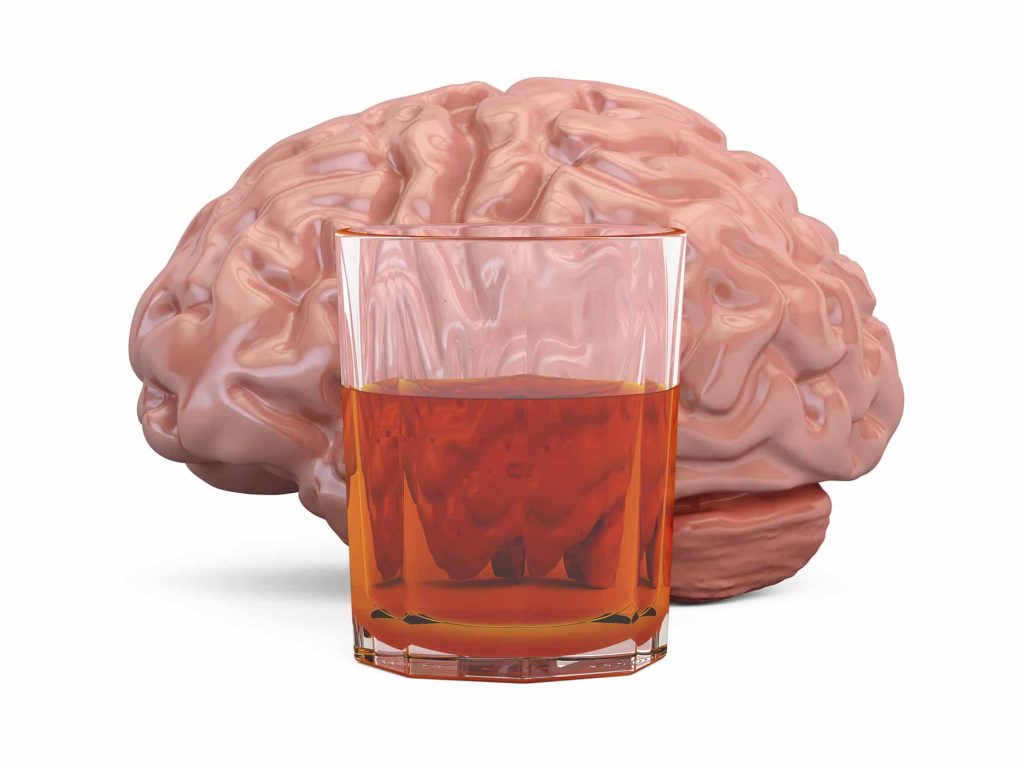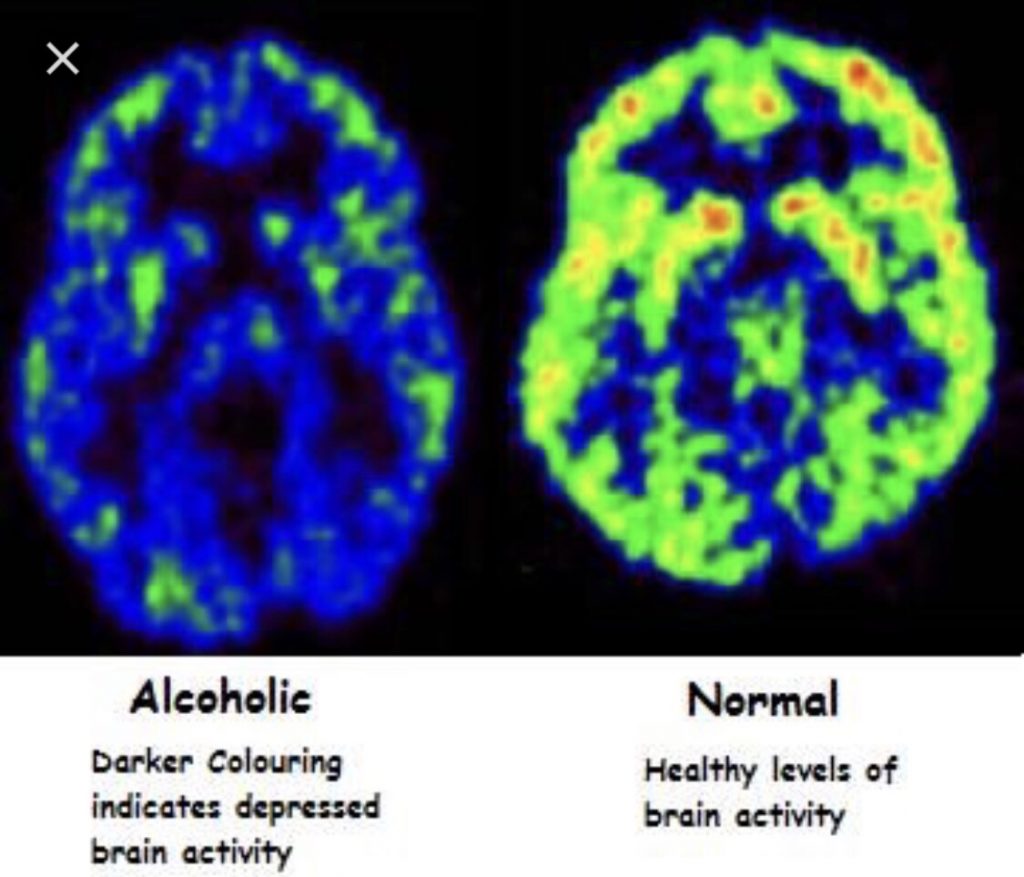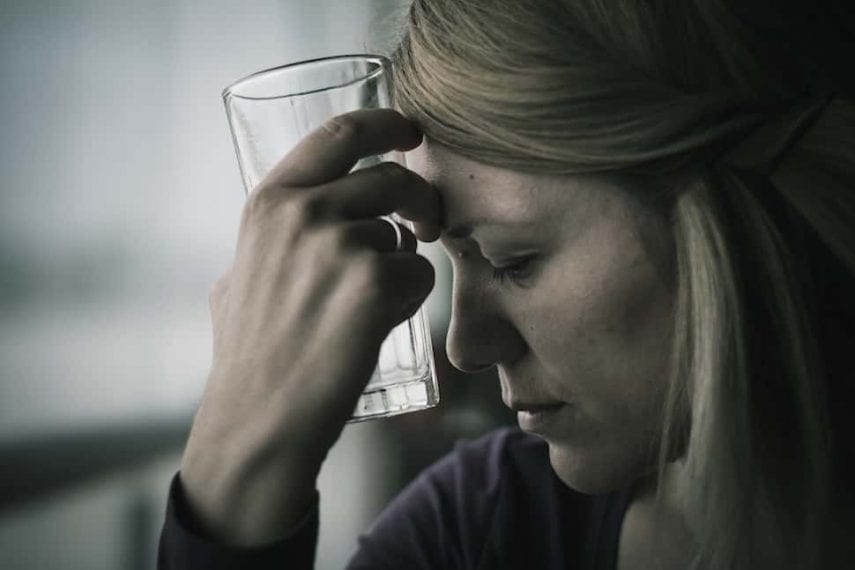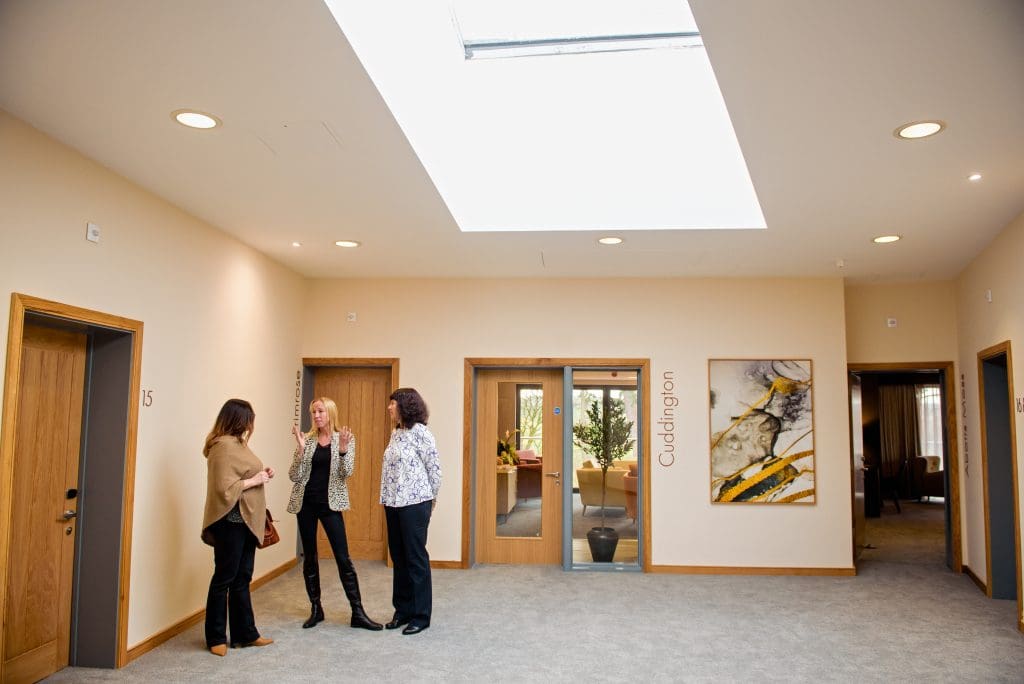-
Call Us: 0330 111 2015


Jump to a section ▼
› Introduction
› Can alcohol cause depression?
› The link between alcohol & depression
› Your mood & alcohol
› Alcohol & Antidepressants
› Treatment for alcohol, depression & anxiety
Speak with our admission team
Call now on 0330 111 2015Excessive alcohol use and depression often go hand in hand. From a treatment and also a personal perspective, it can be difficult to determine which came first. Gaining a correct diagnosis is vital to recovery from both alcoholism and depression.

At Delamere we specialise in treating alcohol use disorders and their common co occurring illnesses. We find that many of our guests come to us at the point where they feel mentally, physically and emotionally overwhelmed. They are often deeply depressed, anxious and feel they have lost all hope of ever recovering.
At Delamere we treat all conditions presenting in our guests simultaneously. We find that this approach vastly reduces the risks of relapse and is conducive to long term recovery from both alcohol and depression.
Depression and alcoholism often present together but not all patients suffer from a true dual diagnosis. More often than not, by treating the alcohol aspect safety, appropriately and comprehensively, the depression is naturally lifted and resolved.
In some cases of alcoholism and depression, however, the depression is a major factor in the persons alcohol use. They may have started to abuse alcohol to self medicate. This in itself would exacerbate the symptoms of depression, perhaps causing the individual to drink even more.
Dual diagnosis conditions that co occur can often present a chicken and egg scenario; which came first can be difficult to pinpoint by the individual and by the NHS. This is because the NHS’s mental health and alcohol teams work separately rather than together.
At Delamere’s addiction treatment and behavioural wellness facility we are able to accurately assess, diagnose and treat guests suffering from dual diagnosis conditions within the safety of our purpose built treatment facility.
We have our own in-house multidisciplinary team, consisting of a fully qualified consultant psychiatrist, doctors, nurses, addiction treatment counsellors and holistic therapists.
If you, or someone you love, are suffering from a problem with alcohol and depression, it is vital that you are professionally assessed before being treated. Call our Delamere team today for an free initial over the telephone assessment of your treatment needs.
The answer to this is quite simply yes! Alcohol is a depressant drug and can have a severe negative impact on a persons mental wellbeing as well as their physical health (1).
When alcohol is used excessively it can stop the brain from naturally producing the organic chemicals that make us feel content, emotionally balanced and motivated.

Many that suffer from alcoholism and alcohol dependence are unable to produce mother nature’s feel good chemicals due to alcohols toxins damaging the brains reward system. The only way they can feel any pleasure is to drink alcohol. Even then, the alcohol eventually stops working.
It is at the point, that alcohol’s negative effects will start to heavily outweigh the benefits. An individual who is compelled to drink can feel acutely overwhelmed by their situation. Hopelessness creeps in as does anxiety, depression and even suicidal ideation.
In an individual that suffers from alcohol addiction, abuse or dependence and who is also displaying symptoms of depression, it is vital that they access professional medical and therapeutic treatment for all conditions presenting without delay.
We know that alcohol can not only trigger the onset of depression, but that it can also make already existing depression much, much worse.
There is a definite connection between excessive alcohol use and increased incidences of self-harm and suicide (2)
Alcohol works on parts of the brain that control emotions, self-control, impulsiveness, inhibitions and perception (amongst many others). This can lead a depressed individual to have the courage and impulsiveness to carry out a suicide attempt whilst intoxicated.
Alcohol can also cause an individual to feel deeply depressed and anxious following a heavy drinking episode.
Consuming alcohol produces initial feelings of euphoria and relaxation. This results from alcohol initiating an excessive release of dopamine into the persons brain. Following on from alcohols initial euphoric high, there inevitably follows a crash.
Once alcohols effects have worn off, dopamine levels fall to subnormal levels. A person who experiences this frequently will be tempted to drink alcohol just to feel normal (or to what they perceive to be normal)
Those that drink to harmful levels are much more prone to the negative effects of alcohol on their mental health and to suffering from anxiety and depression.

Alcohol and depression are connected when:
 Detox safely in our medical facility
Detox safely in our medical facility
 Free collection
Free collection Future-proof
Future-proofRegular use of and/or excessive use of alcohol changes the brains chemistry. Alcohol decreases and depletes the levels of serotonin that the brain produces. Serotonin plays a key role in our mental health, helping us to feel emotionally balanced and happy.
As a result of alcohol depleting natural serotonin levels, a person’s mood starts to drop. They start to feel sad and hopeless. This can trigger a clinical cycle where an individual increases their drinking to temporarily relieve their depressive mood. This in turn causes a further depletion in serotonin which can trigger the drinking and depression to become progressively worse (1)

Many individuals who suffer from depression, seek medical help and may be prescribed antidepressants to increase the amounts of serotonin in the brain to restore balance. This is often (and clinically advised) to be combined with counselling or therapy for maximum effectiveness.
Antidepressants can take several weeks to work, sometimes months. If the individual continues to drink whilst taking the antidepressants, they simply will not work.
The alcohol will continue to deplete serotonin, rendering the effects of antidepressants ineffective. This can leave them feeling more hopeless than ever.
It is also important to note that with many antidepressants it is not safe to drink alcohol, due to possible negative side effects and interactions that may occur.
Furthermore, drinking excessively lessens the helpfulness of therapy and counselling. Whilst a person is drinking excessively, their mood will be too unstable, their perspective and cognitive ability impaired and they will be unable to implement effective changes or tap into their true emotions.
At Delamere we are extremely proficient and experienced in treating all kinds of alcohol use disorders and their common co occurring mental health illnesses. We treat all conditions presenting within our guests simultaneously. This has been medically proven to be the most effective way of preventing relapse and enabling a full recovery.
Any guest that enters one of our bespoke treatment programmes will be comprehensively assessed by our consultant psychiatrist, doctors and counsellors. Our distinguished professionals work closely together as a team, ensuring that each guest receives the best treatment possible.

In cases of alcohol and depression, the alcohol will initially be removed through a bespoke medical alcohol detox to minimise alcohol withdrawal symptoms. This process is monitored 24/7 by our team of qualified nurses.
Once the alcohol has been safely and comfortably removed, we can then reassess our guests psychiatric wellbeing on a more in depth level, without the fog of alcohol clouding the issue.
Rehabilitation treatment for both alcohol and depression are delivered simultaneously at Delamere, using evidence based treatment methods delivered by our exemplary team of experts. Where deemed necessary, therapeutic rehabilitation is combined with medical intervention to ensure a full and lasting recovery.
Recovery from alcohol and depression is possible with the correct diagnosis, treatment and ongoing support. Call us today to find out more.
References
Start your recovery journey by calling our admissions team today.
Confidential. Straightforward. Friendly.